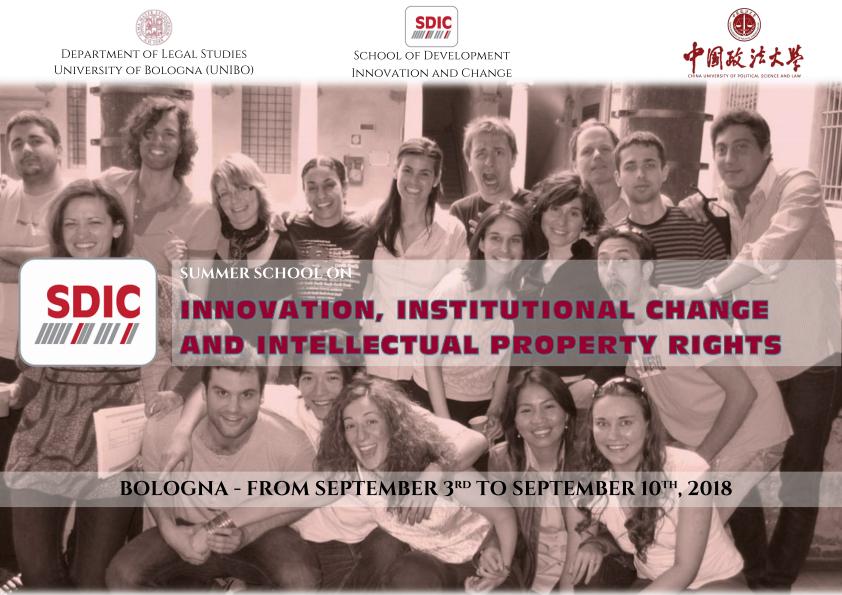






Over the last decade in a reference frame of great geo-strategic and politico-institutional complexity Europe and China have been planning ambitious programmes of industrial and commercial investment giving a pivotal role to firms as forerunner of deep structural change. Smart factory, Smart specialization, Smart city, Industry 4.0, Belt and Road Initiative (BRI) are the key words pooled together.
Environmental, social and economic sustainability of such programmes crucially rely on the capacity to adopt in Europe and China research, innovation and education projects in line with the relevant processes of institutional change and regulation.
The investigation of economic and institutional change plays an essential role in developing a coherent conceptualization of the main issues involved, identifying the most relevant reference models and assisting in the selection of the most appropriate policies.
Research and teaching activities carried out in close interaction between Italian and Chinese analysts, entrepreneurs, managers, policy makers and students from all over the world can help to implement a quantum leap with respect to the actual frontier of scientific literature and teaching practices. In particular, the study of innovation in economies, characterized by structures and behaviours in which firms with a family origin play an important role, can support the design of new research and teaching programmes in higher education.
OBJECTIVES
The Summer School on “Innovation, Institutional Change and Intellectual Property Rights” springs within the cooperation agreement between the University of Bologna (UNIBO) and the China University of Law and Political Science (CUPL) in research and education projects on innovation and institutional change.
In the present project these issues are focused on the enterprise undertakings – particularly the family businesses – in the perspective of the European and Chinese strategies for development and, in particular, of the BRI strategy and its European impact. The project aims to investigate the interactions between innovation, institutional change and IPRs shaping the economic and institutional evolution which took place during the last decade and it is still in progress in EU and China.
Its purposes can be split in the following objectives: (1) to draw a joint reference framework to the second phase of globalization, and to isolate the common research questions to be explored; (2) to identify the common education needs to be fulfilled.
The Summer School implements the second objective, by organising a set of intensive courses on the innovation dynamics at the technological frontier, and on the correlated IPRs issues, which are strategic for the economic development of national economies and for the international competitiveness in the context of globalization. At the same time, the IPRs drive the technological change with respect to the skills composition of labour demand, workers’ international mobility, job polarization, inequality in income distribution.
ACTIVITIES
The Summer School, anticipating broader mobility schemes for first and second level and doctoral students, addresses both the theoretical and the applied side of economics and law, in order to establish a basic common ground for students from Italy, EU and China. The analytical tools of both disciplines will be employed in order to study the new opportunities offered by the first and second stage of markets’ globalization for promoting sustainable development in the EU and Chinese perspective.
The research and the teaching staff will include members of the Department of Legal Studies at UNIBO and the School of Law at the CUPL, as well as the associates to the School of Development Innovation and Change (SDIC). They will operate under the supervision of the UNIBO project coordinator jointly with the CUPL counterpart.
The Summer School will be held at the UNIBO premises on September 3-10, 2018. The School will be open to undergraduate and graduate students from Chinese and European universities. The School offers a portfolio of five intensive courses of 6 hours each one (see page 5).
At the end of the Summer School a full-day cross-cultural event will be organized with the participation of Chinese and Italian entrepreneurs and policy makers, aimed at discussing the frontiers of innovation into the two countries, focusing on Industry 4.0, the best practices in IPR management, and the implications on the demand of new skills in the international labour markets.
Click here to download the preliminary programme of this event
INTENSIVE COURSES
The five intensive courses offered by the Summer School are the following:
Innovation and (intellectual) property rights: The new frontiers
[Marina Timoteo and Wang Yukai]
IPR protection and enforcement under EU and Chinese perspective: overview
[Angela Carpi and Rocco Lanzavecchia]
Globalization, structural change and innovation in EU and China
[Gilberto Antonelli, Riccardo Illy and Wenming Xu]
Innovation, industrial policies and IPRs in EU and China
[Patrizia Fariselli and Wenjing Li]
Innovation, graduate jobs and demand for new skills in EU and China
[Giovanni Guidetti and Wei Ha]
At the end of the courses students’ panels will debate the main results achieved.
HOW TO APPLY
All applications should be submitted online through the application form published on the Summer School website: https://www.sdic-school.org
An application fee of 550 € is payable with each application.
Payments should be made clicking this button Payment Page
8 partial and 8 total grants will be available for the top students.
Students based in China may wish to apply through the CUPL office in Beijing. Send please her/his CV to wenming.xu@cupl.edu.cn, or visit http://cle.cupl.edu.cn/
The deadline for applications has been postponed to the 15th of August 2018.
Applications will only be considered after that date if places are available. We strongly advise you to apply as early as possible.
FORM TO BE FILLED BY THE APPLICANT TO THE SUMMER SCHOOL ON
“INNOVATION, INSTITUTIONAL CHANGE AND INTELLECTUAL PROPERTY RIGHTS”
USEFUL INFORMATION ON THE SCHOOL OF DEVELOPMENT INNOVATION AND CHANGE (SDIC)
Postal Address: Professor Gilberto Antonelli, Via C.A. Pizzardi 2, 40138 BOLOGNA (ITALY)
Mail: gilberto.antonelli@unibo.it
